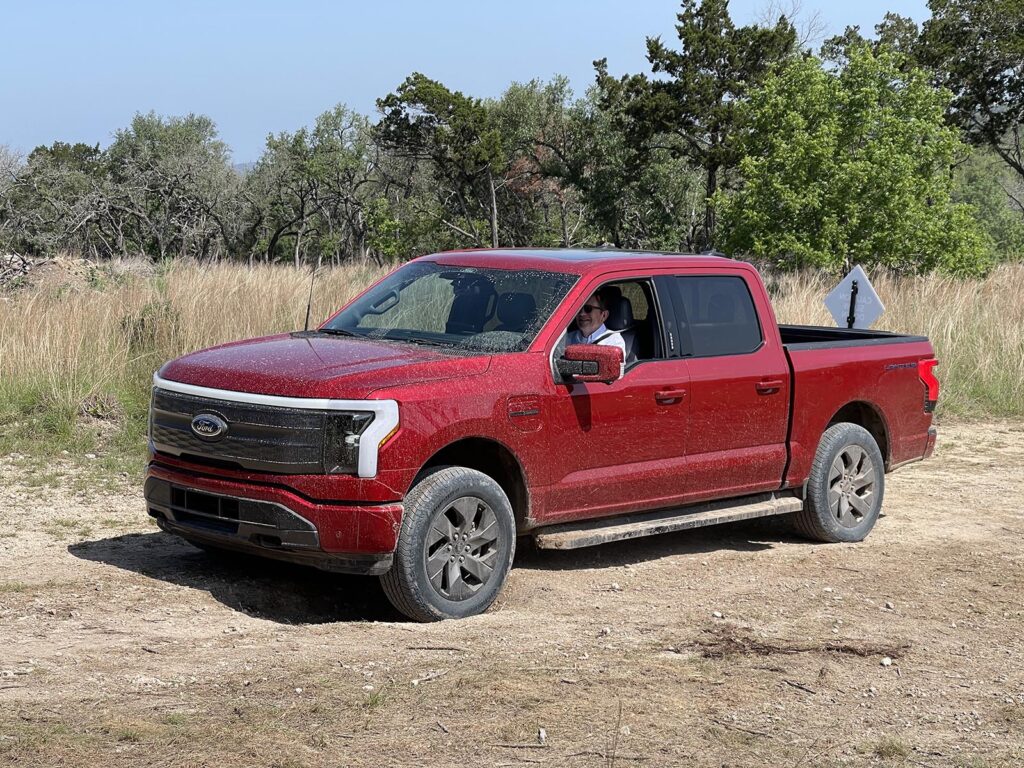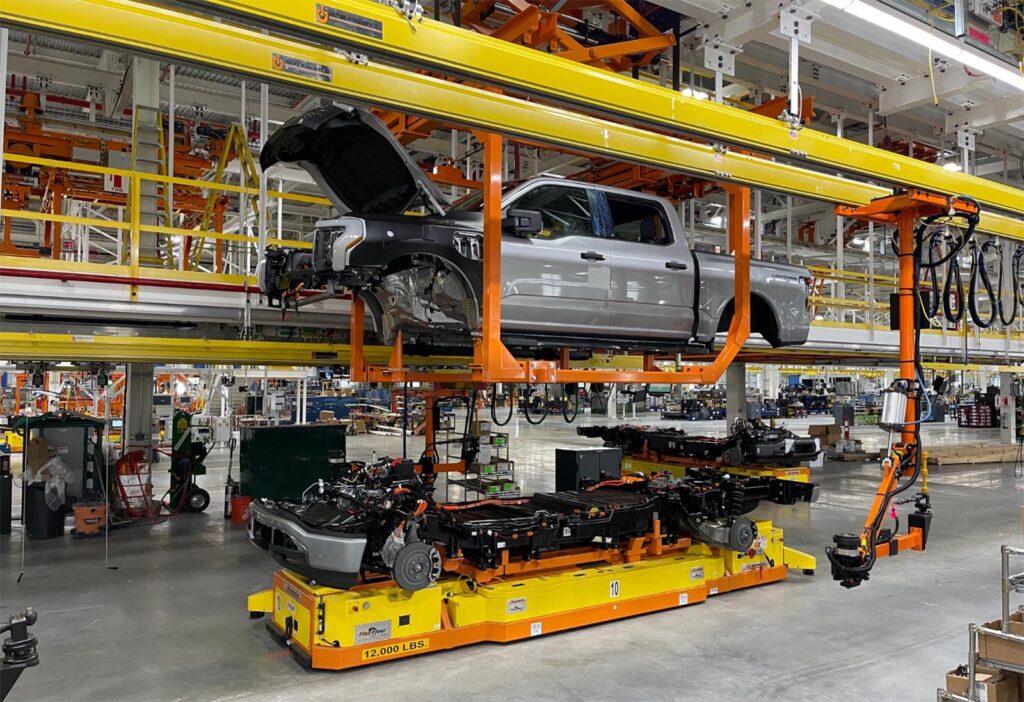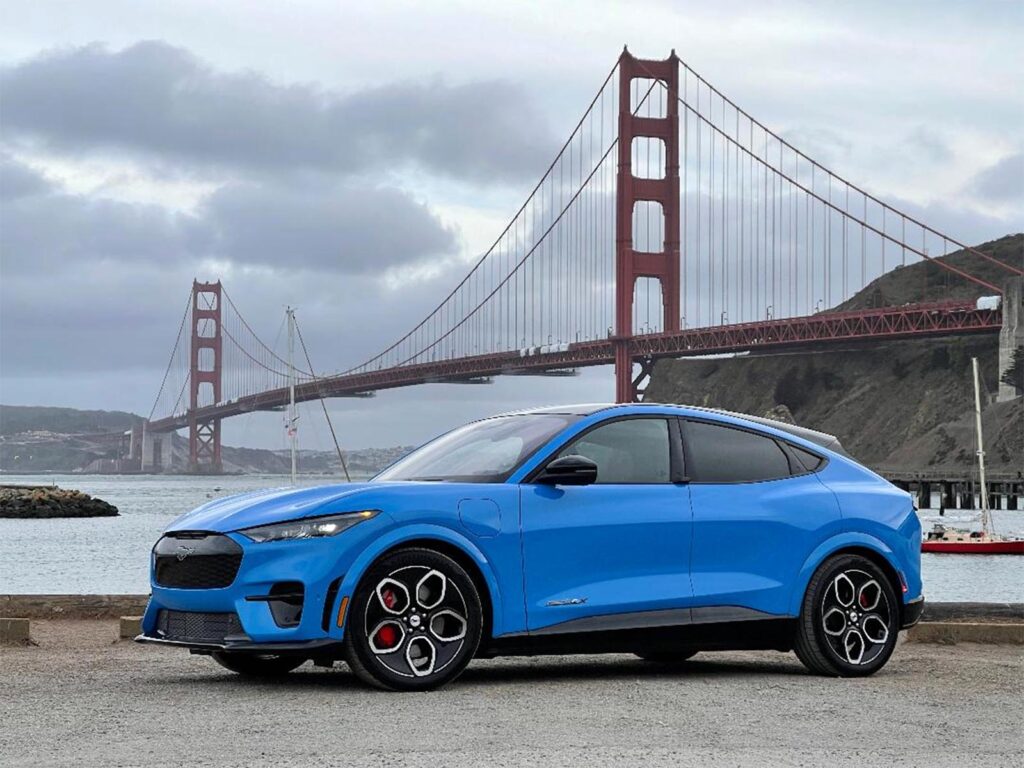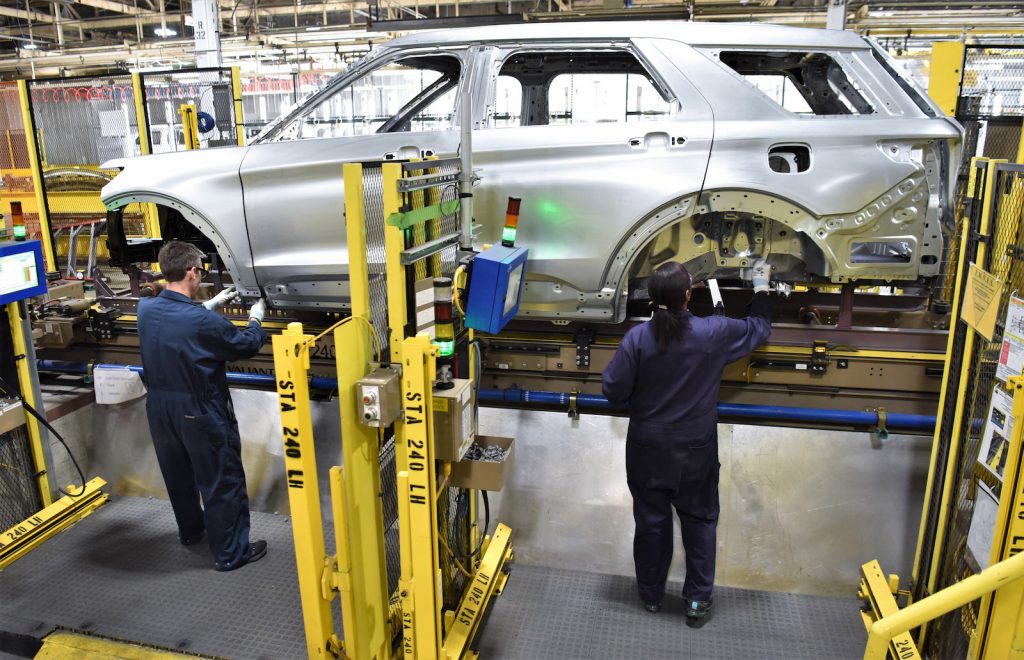FORD

After a slow start, Ford has now solidly locked itself into second place in the emerging U.S. EV market behind segment leader Tesla.
The Detroit automaker reported October sales of its three battery-electric vehicles were up 120% year-over-year, with the new F-150 Lightning pickup delivering much of that momentum.
Yet Ford could be doing even better, said Darren Palmer, vice president of electric vehicle programs for Ford Model e. If anything, it greatly underestimated demand for its all-electric models, the Lightning, in particular.
Misunderestimating...“We could sell a lot more if we had them,” Palmer acknowledged during a video interview this week. “We didn’t put enough volume in. We didn’t predict the success rate.”
When the automaker opened up its new electric vehicle production center at the Rouge manufacturing complex near Detroit early this year it had the capacity to build just 40,000 of the battery-powered trucks. Since then, Ford has repeatedly expanded the operation and, said Palmer, the goal is to have it ready to run at an annualized production rate of 150,000 by the end of 2022.

Launch problems...Ford has an unwelcome history of launching new products only to discover a series of manufacturing and design issues. The latest-generation Ford Explorer offers one of the most dramatic examples. The botched roll out — and the subsequent slowdown in production — was a major factor behind the 99% drop in Ford’s 2019 earnings.
The Mach-E, Ford’s first long-range battery-electric vehicle, has experienced a series of problems of its own. In June, nearly 49,000 were recalled to address a defect that could cause the EV to unexpectedly lose power. At the same time, Ford briefly issued a stop-sale order, advising dealers to halt deliveries until a fix could be found.
Later that month, a recall was announced for 2,666 of the first Lightnings due a potentially faulty tire pressure monitoring system. Only a handle had yet been delivered to customers, however.

The Mach-E still outsells Lightning — Ford delivering 3,055 of the electric SUVs in October compared with 2,436 of the pickups. But that’s likely to flip-flop by the end of the year, at least if Palmer’s team can meet its goal.
Quality really has to be “job one”...But with the Lightning serving as the real halo product for Ford’s electrification program, the priority is making sure “Quality is job one,” said Palmer, repeating the tagline Ford long used for its advertising.
“They can’t afford to mess it up,” said Sam Abuelsamid, principal auto analyst with Guidehouse Insights. “If they had multiple major recalls it would definitely hurt the reputation (of the Lightning) which is going to be facing a lot of competition in the next 12 to 18 months.”
There already are two competing battery-electric pickups on the market: the Rivian R1T and GMC Hummer EV, though both are relatively low-volume models. Next year sees the launch of the Chevrolet Silverado EV, however, with Tesla claiming it will finally bring its Cybertruck into production late in 2023. And all-electric versions of the GMC Sierra and Ram 1500 pickups to follow in 2024.
Slow ramp up pays off...With several Ford sources telling TheDetroitBureau that internal studies show the focus on quality is working, production of the Lightning is now accelerating.
Ford clearly wants to dominate the market before those key competitors roll into showrooms. And the demand is there, Palmer said, estimating “We probably could have” sold as many as 200,000 Lightnings had there been the production capacity this year.
Lightning and Mach-E are Ford’s two retail EVs, with the automaker also selling a battery-powered version of its big van, the e-Transit. It delivered 770 last month, a 71.5% year-over-year increase.
A “suite of EVs” coming...But still more all-electric products are in the works, backed by a $50 billion investment program through 2026. Ford has been cautious about revealing details but has confirmed an Explorer-sized EV will be next to reach showrooms.
“We’re working on a suite of EVs,” hinted Palmer.
For his part, CEO Jim Farley also announced that a second all-electric pickup will debut early in the second half of this decade. It will be produced alongside a second-generation Lightning at BlueOval City. That’s the massive new manufacturing complex Ford is setting up near Memphis.

Even before BlueOval City gets into operation, Ford has set a target of reaching an annual global run rate of 600,000 EVs by late 2023. That figure will include “one other small E-SUV in Europe,” Ford said in an e-mail sent to TheDetroitBureau. With the new Tennessee complex and other new manufacturing operations online, that is expected to reach 2 million EVs annual by late 2026.
Moving beyond the early adopters...The big question is whether there’ll be buyers for all the electric vehicles coming from Ford, as well as its competition. But the growth rate is accelerating. Where EVs made up a mere 1% of the U.S. new vehicle market at the end of 2019, that surged to around 5% for the first half of 2022. And it is now running at over 7%, according to preliminary industry date.
“I’m not surprised,” said Palmer, noting “We’ve been talking to (potential) customers for a long time.”
“People are realizing” the benefits of going electric, he added. “Compare it to the smartphone. People didn’t know they needed it (until) they tried it.”
While this is still the “early adopter phase,” Palmer said. But as new products reach market, EVs are beginning to connect with a more mainstream buyer. And, as with smartphones, that’s what will trigger the real growth.
by Paul A. Eisenstein, Detroit-USA

Nenhum comentário:
Postar um comentário